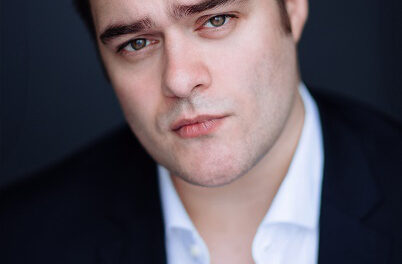Giacomo Puccini: Turandot. Salzburg Festivals 2002. Vienna Philharmonic, Valery Gergiev cond. DVUS – OPTURSF
Puccini’s last and unfinished drama of Turandot, the beautiful and sexually hung-up princess who beheads all her suitors who can’t answer her three riddles, has always presented a number of staging difficulties. In the first place, Puccini died in the middle of writing the last two scenes, and their completion by Franco Alfano was always unsatisfactory – and therefore, severely cut. Another issue is the role of Turandot herself, which demands a singer who looks like Yum Yum but sings like Brünhilde. Moreover, the fake-orientalism of the original setting has to be modified so as not to appear dated and quaint – if not downright racist.
In this regard, most successful was Director David Pountney’s production, with sets and costumes by Johan Engels, which must have been the most costly production of Puccini’s Turandot ever. Taking his cue from the opening chorus, which describes Turandot’s totalitarian regime through her puppet (literally!) father as endless, grinding labor, the opening set portrays what can only be the inner workings of a manufacturing plant run by robotic humans with jerky movements, scissors and knives for arms, and without soul or feeling. Through Prince Calaf’s combination of passion and canny manipulation of the great dictatress herself, the dénouement of the opera transforms this nightmarish world into a new land of love and humanity. But this is only the tip of the iceberg as far as the surreal sets and costumes are concerned. It’s worth the price for the DVD alone.
As for the musical side, a somewhat mixed review goes to the new ending by the late Luciano Berio. While it projects a gentler, more humane mood at the end and a more gradual and, therefore, believable transformation of Turandot than does Alfano’s, it does not retain Puccini’s musical language.
And now to the cast. Gabriele Schnaut as princess Turandot and Johan Botha as Calaf have good voices, but, frankly, Calaf would have to be as blind as his old father to succumb to Turandot’s physical charms. But perhaps that’s the point; her effect on men can be understood as more of an evil spell than real desire. The close photography on the DVD makes this even more apparent. Schnaut, who has sung nearly every Wagnerian role, is convincing when imperious, especially in the scene where she asks her three questions.
Christina Gallardo-Domas as the gentle slave Liù steals the show, both in her voice and in her acting. Turandot’s ministers, Ping, Pang and Pong, are also marvelous. Their comic-nostalgic Act 1 trio is definitely the production’s show stopper.
In the special features, Pountney explains his surrealist approach, and Gergiev his use of the new Berio ending. Schnaut, explaining her approach to the role, comes across more appealing than in the opera itself.
It may not be the best Turandot available on DVD, but the unique staging makes it definitely a worthwhile addition to any opera collection.











